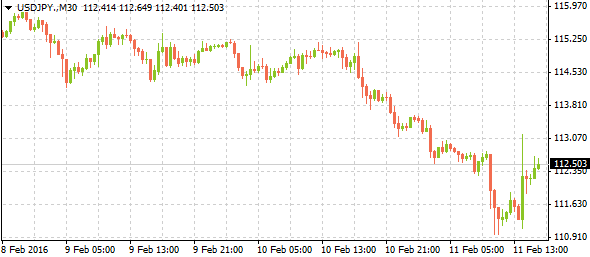Investing.com’s stocks of the week
The various ways that major economies are dealing with sustained global weakness comes out in the policies enacted by their representative Central Banks, with some of the latest moves exemplifying the true volatility of the currency competition. After a period of relentless strength in the yen, the Bank of Japan opted to begin a bulk sale of its own currency in an attempt to drive up the value. The move prompted a 200-pip run upwards in USD/JPY before giving back ground, an excellent example of a valuation-adjusting event that is clearly in violation of the terms agreed upon during 2013’s G20 summit to refrain from devaluing local currencies. However, no one can condemn this action as various adjustments have been made during the last year that were deemed necessary by global powers in order to avoid all-out depression. Nevertheless, in his urgency Bank of Japan Governor Haruhiko Kuroda did not publish an explanation of the selloff, giving market participants an indication that the Central Bank is running out of solutions. The power behind the yen’s momentum is even strong enough to raise the specter of increasingly negative rates in Japan, further down from the already-established -0.10%.

Further meddling in currency was enacted by the Swedish Riksbank, whose members just today slashed interest rates in the country from -0.35% to -0.50%. The move came after inflation’s failed attempts to rise amidst expansionary policies intended to weaken the krona after a series of ineffective asset purchases. The lower krona may help to fight deflation, but weakness in consumption and growth like in most major economies will likely stave off improvements. Another rising issue is that in a time when Central Banks can freely adjust the value of domestic currencies, no one move puts a particular country ahead of its peers for very long. Additional currency-centric policies will probably arise in the following days, weeks and months to the extent that moves will negate whatever was intended to improve the Swedish situation. All told, sweeping, extreme policies that devalue currencies may give way to sounder strategies that seek to support the fundamentals of real growth, as the futility of recent policies is realized.
